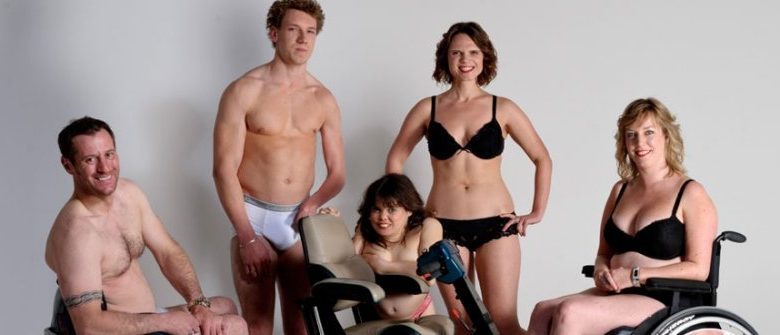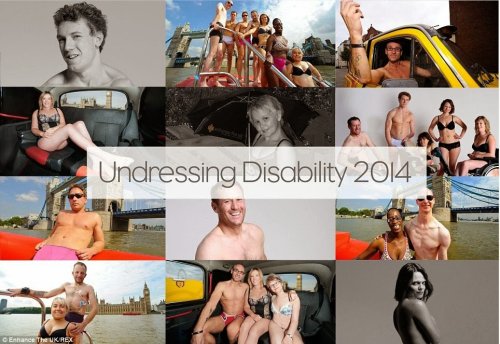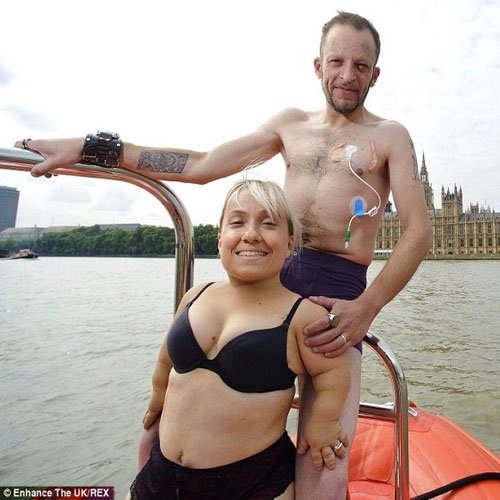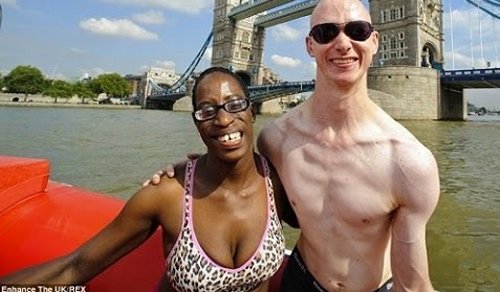
Undressing Disability: celebrating all bodies and campaigning for change
This is an updated post from our archives. Since this post Enhance The UK has made great strides in awareness campaigns.
Enhance the UK’s Impact Since 2014
Enhance the UK has grown into a leading disability-led charity, working to change societal perceptions of disability. Since its early days, it has achieved several major milestones:
Disability Awareness Training
The charity offers disability awareness training to businesses and organizations across the UK and internationally. These sessions aim to foster inclusivity by educating participants on effective communication and interaction with disabled people. Learn more about their training here.
Undressing Disability Campaign
The Undressing Disability campaign is a global initiative raising awareness about the sexual rights and needs of disabled people. It includes resources like the Love Lounge, an online forum providing free advice on topics related to sex, love, and disability. Explore the campaign here.
Leadership Recognition
In 2019, Jennie Williams, CEO of Enhance the UK, was named in the prestigious Shaw Trust Power 100 List, which highlights individuals breaking barriers for disabled people. Read about her achievement here.
Through these initiatives, Enhance the UK continues to challenge and change perceptions of disability, promoting an inclusive and understanding society.
Original post follows:
Enhance the UK is a small charity specialising in ensuring there are equal opportunities for those with disabilities and sensory impairments, delivering interactive disability awareness training and online resources. They recently ran a successful campaign called Undressing Disability.
The scenes in our Undressing Disability 2014 calendar are not your ‘typical’ images. In the images, our disabled models are all smiles and pouts, relaxing by iconic London landmarks. Whether bobbing on the Thames in front of Tower Bridge. or inside a taxi whizzing past the London Eye, they are all confidently owning their image, donning nothing but their underwear.
This is, sadly, not something we see in the media every day, or even every year. But that was our aim, to challenge the common perceptions about disabled bodies. Our campaign celebrates the beautiful differences of disabled people’s bodies, and what better way to do that than creating something people WILL see everyday, all throughout the year.
It’s now your last chance to get your hands on a calendar at Enhance the UK. They are free but a suggested donation of £6.00 is requested and will go towards our inclusive Sex and Relationships Education (SRE) project, which is in collaboration with Brook, a leading youth sexual health provider and educator.
 We started this project because all too often it’s assumed that disabled people are, or should be, ashamed of their bodies, and they’re certainly not expected to engage in sexual relationships.
We started this project because all too often it’s assumed that disabled people are, or should be, ashamed of their bodies, and they’re certainly not expected to engage in sexual relationships.
In reality, the exact opposite is true. Yet, young disabled people are presented with a sexual education curriculum that ignores their needs and how their differently developing bodies work.
Therefore, they are not educated as efficiently about pregnancy and STIs as their able-bodied counterparts. This puts them in a highly vulnerable position and, because of their disability, they are likely to have more pressing, personal questions surrounding sex.
It’s barely believable that learning disabilities and physical disabilities are currently placed under the same ‘umbrella’ policy where sexual education is concerned, when actually the two deserve and require completely separate attention.
 Enhance the UK’s founder and director Jennie Williams was surprised to discover that a close friend of hers, who is a wheelchair user, knew so little about the basics of sex well into adulthood. She said:
Enhance the UK’s founder and director Jennie Williams was surprised to discover that a close friend of hers, who is a wheelchair user, knew so little about the basics of sex well into adulthood. She said:
“In every other way he is sociable and knowledgeable. But when it came to sex and what was right and wrong, he didn’t know anything because he had never experienced it and no-one ever told him.”
Our 2013 Sex and Disability Education in Schools survey found that 100% of people didn’t feel sexual education took their disability into account, and 69% thought it should have been.
To get the results we want out of the project, we will be working closely with disabled young people and sexual health professionals to create appealing resources that can be used continually around the country.
Our partners Brook have over 50 years experience educating young people about sex and providing them with valuable services, so being able to combine that with our user-led disability expertise is incredibly exciting.
 We are also embarking on another project that builds upon the message of the calendar, which was originally proposed to us by an all girl’s school. They asked us about the possibility of running a body image workshop, with a focus on disability. The aim will be to demonstrate how you don’t need to look any certain way to lead a rich and fulfilling life, and this was incredibly inspiring to us.
We are also embarking on another project that builds upon the message of the calendar, which was originally proposed to us by an all girl’s school. They asked us about the possibility of running a body image workshop, with a focus on disability. The aim will be to demonstrate how you don’t need to look any certain way to lead a rich and fulfilling life, and this was incredibly inspiring to us.
The course will also focus on correct diet and exercise to help combat eating disorders and decoding the media and its portrayal of women. The course will be presented by trainers who are living examples of how you can be disabled and married with the career of your dreams.
The fact that it’s taken until now for current policy to be challenged where sexual relationships education is concerned is a perfect example of how low disability is on the political and social agenda. But we are determined to turn this around. Nobody deserves to be made to feel they are inferior just because of the body they live in.
Support for Undressing Disability is support for changing the way society thinks.
By Arabella Hoy
Inclusive Sex and Relationships Education: A Vital Need
It’s important to understand why inclusive Sex and Relationships Education (SRE) is essential for young disabled people:
- Addressing Unique Needs: Disabled individuals may have specific questions about sex and relationships that are not covered in standard curricula.
- Promoting Safety: Comprehensive SRE can help prevent misunderstandings and reduce vulnerability to abuse.
- Fostering Confidence: Inclusive education empowers disabled people to embrace their bodies and sexuality without shame.
For more information on inclusive SRE, visit Brook, a leading sexual health charity collaborating with Enhance the UK.
Originally posted on 05/05/2014 @ 12:30 am